Rescue crews scramble to save pilot whales beached in Marybrook, near Busselton and Dunsborough
Two more long-finned pilot whales which were part of a pod that stranded themselves on a beach in the South West have died, bringing the total to 28.
But authorities are hopeful the rest of the 160-strong pod will stay alive as their efforts to prevent them from re-stranding have so far paid off.
Early Thursday morning the Department of Biodiversity, Conservation and Attractions received reports from locals that a pod of whales had beached at Toby Inlet, near Dunsborough and Busselton.
Sign up to The Nightly's newsletters.
Get the first look at the digital newspaper, curated daily stories and breaking headlines delivered to your inbox.
By continuing you agree to our Terms and Privacy Policy.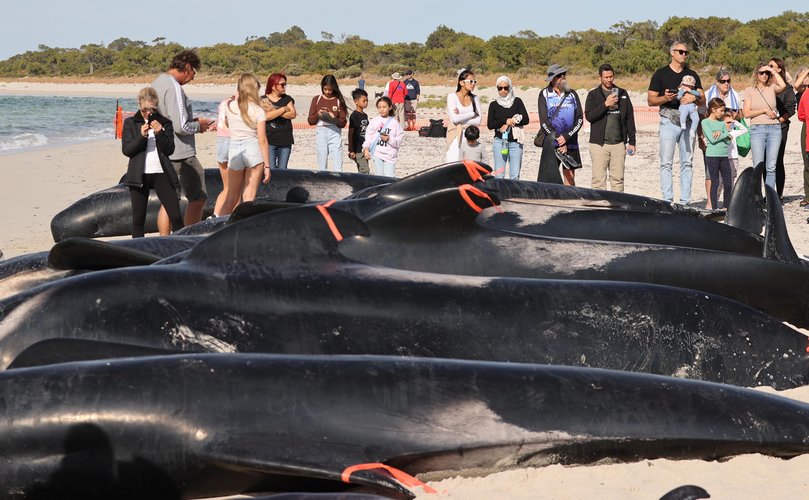
Experienced staff from DBCA as well as vets from Perth Zoo were deployed and joined dozens of volunteers who had descended on the scene to try to save the whales.
Some were pouring water on the distressed mammals in a bid to keep them alive.
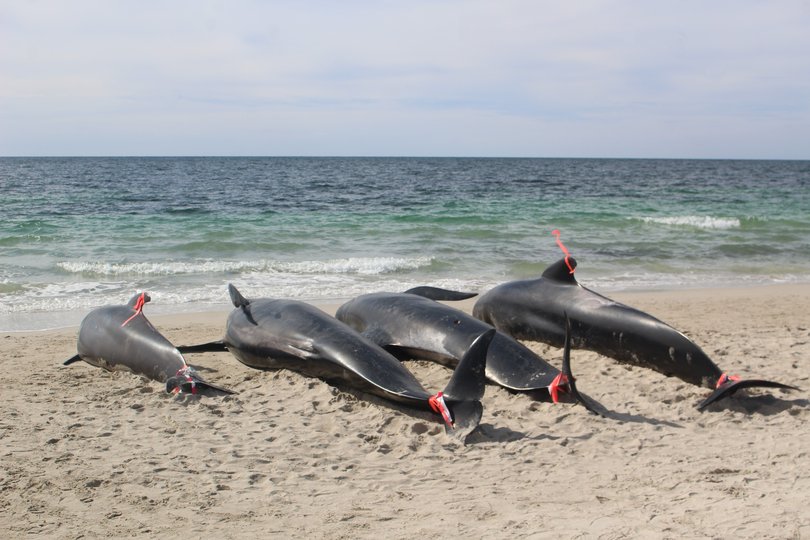
However, by early afternoon the rescuers had the grim task of removing some the carcasses from the shallow water.
The department’s Pia Courtis said around 20 whales remained close to the shore while another 110 were around 1.5km offshore but were still in the water.
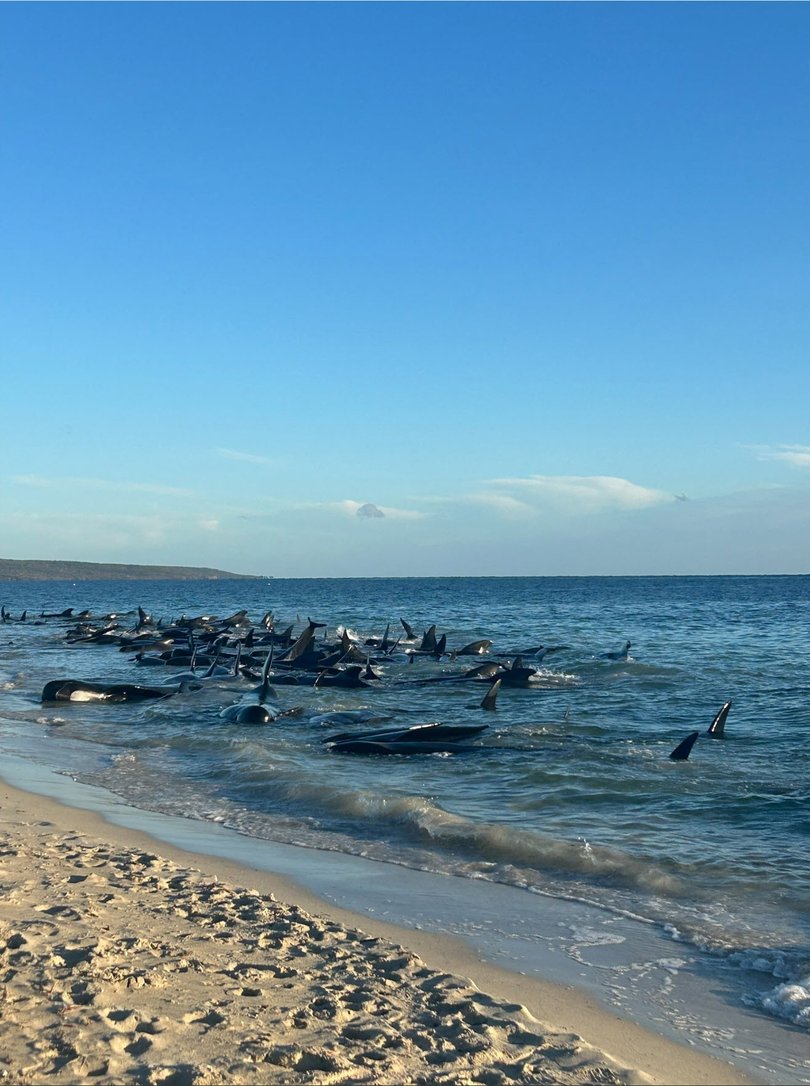
She said boats deployed by the department had so far been successful in preventing the mammals from re-stranding but that officials including the department’s spotter plane would continued to monitor them for the rest of the day and tomorrow.
It is understood there are four separate pods with those on the beach stretching about 500m.
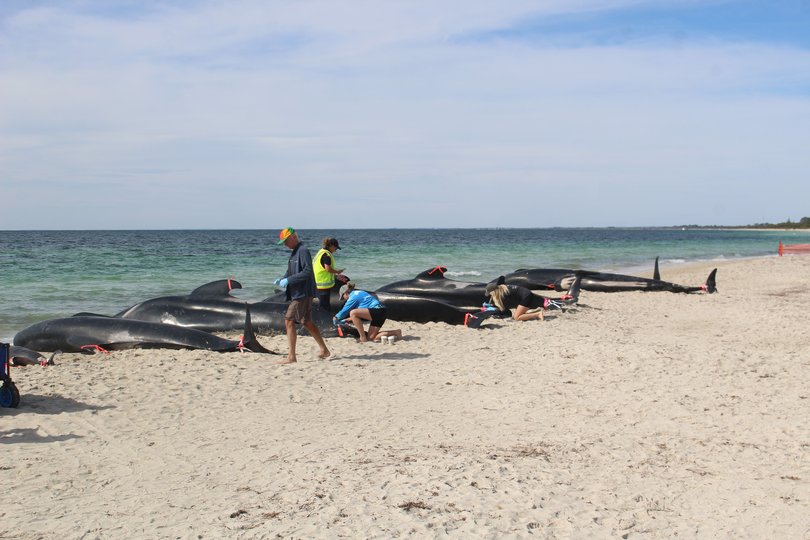
Earlier, Ms Courtis explained pilot whales have been know to strand along the WA coast and warned the outcome for them was generally “not good” explaining a high number of them usually died.
At a press conference on Thursday afternoon, she said it was still unclear why the whales had come so far into shore — as with most mass strandings — but that they were using some of the things they learned from the stranding event at Cheynes Beach last year.
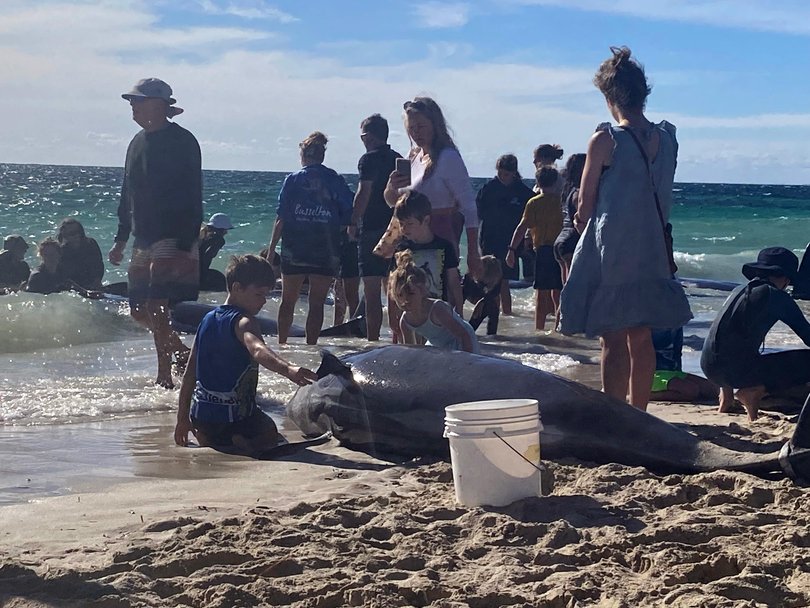
More than 50 whales beached themselves on July 25 with locals reporting the pod had grouped together offshore beforehand. Another 40 had to be euthanased.
Ms Courtis also said it was important the dead whales were removed from the beach to stop the others from trying to reach them.
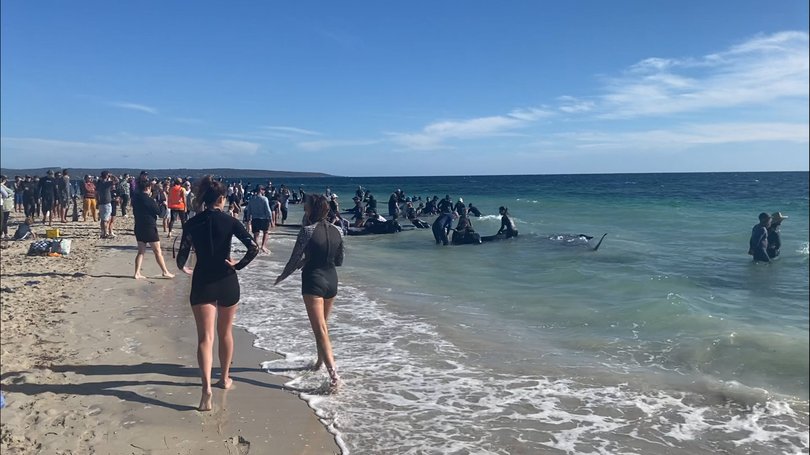
Pilot whales are said to have strong social connections, and it thought to be a factor in why others in a pod will follow when one beaches itself.
“It’s quite important we remove the dead whales from the water to stop encouraging the ones in the water to re-strand,” Ms Courtis said. “We have been using vessels to keep the ones in deeper water offshore.”
Removal from the beach was also to reduce the risk of attracting sharks, she added.
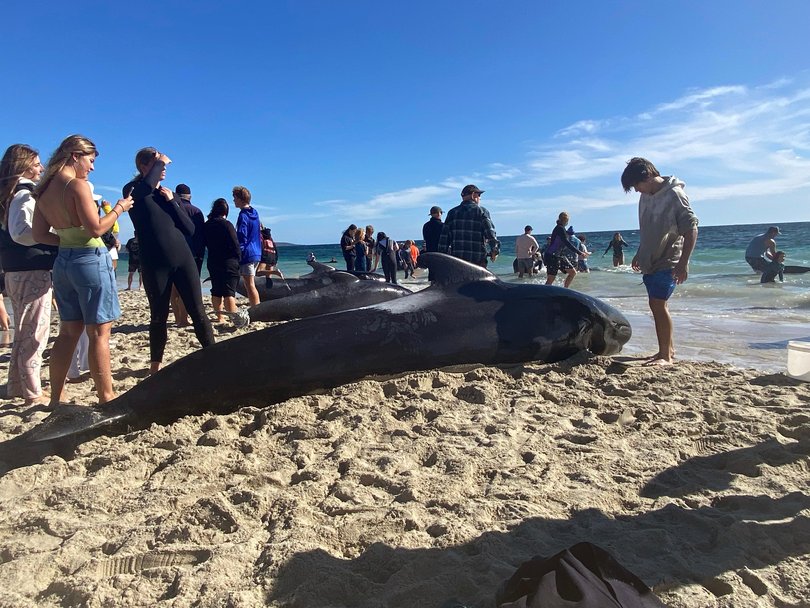
Earlier, the department issued a shark advice for the area warning the dead and injured animals will act as attractant, leading to sharks to come closer to shore.
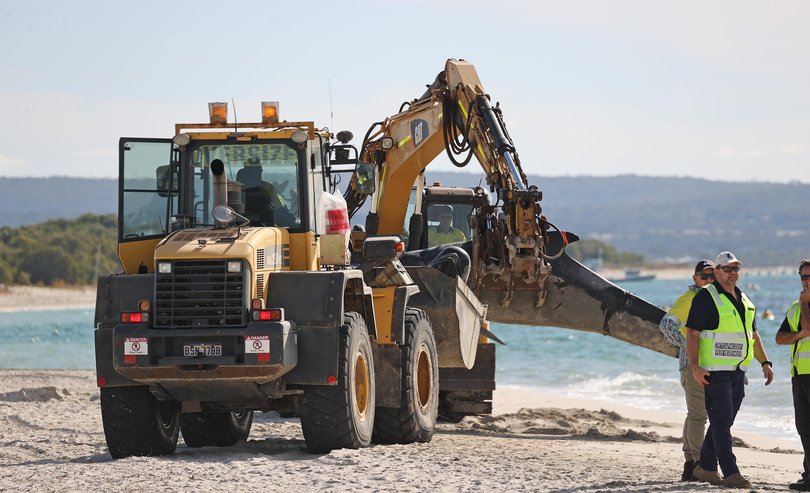
“While it is not uncommon for sharks to be present off the Western Australian coast throughout the year, people should exercise additional caution,” the department said.
Earlier, Geographe Marine Research chair Ian Wiese, who had gone to Toby’s Inlet to help to save the mammals, described the scene as “terrible”.
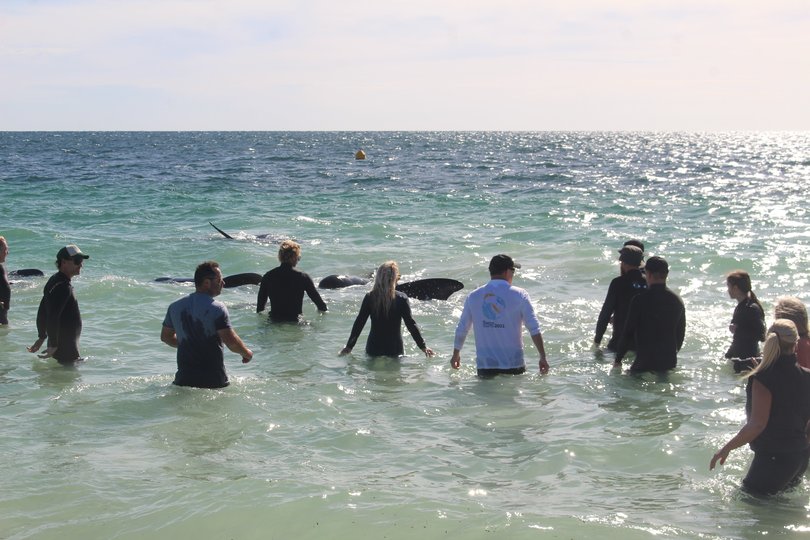
“It’s terrible … there’s lots of theories around the world but nobody’s really been able to find a cause [for mass whale strandings],” he added.
We know people want to help but we asked that people please do not attempt to rescue the animals
Ms Courtis also thanked those volunteers who had come down to help.
Earlier, the DCBA encouraged those who wanted to help to register with their Busselton office.
“The highest priority at mass whale stranding events is always human safety followed by animal welfare. We want all staff and volunteers to go home safe,” the department said.
The Department added: “We ask that people please follow instructions of DBCA staff to ensure the highest human safety and animal welfare outcomes are achieved.”
Besides the mass stranding at Cheynes Beach in Albany last year, there has been a series of other strandings in recent years.
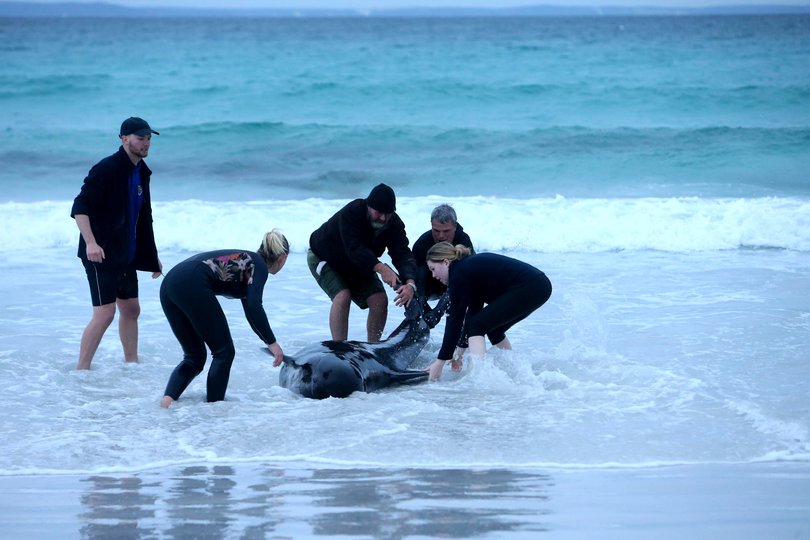
Around 130 whales died in a mass stranding in early 2018 at Hamelin Bay.
And 320 long-finned pilot whales beached themselves in Dunsborough in 1996, which is believed to be the largest mass stranding of whales in WA.
Those who would like to help with the whales at Toby Inlet have been asked to call the Parks and Wildlife Service in Busselton on 9752 5555.
Originally published as Rescue crews scramble to save pilot whales beached in Marybrook, near Busselton and Dunsborough
